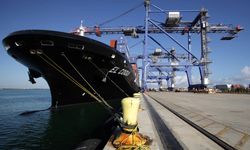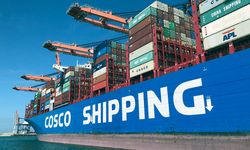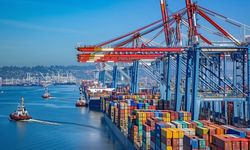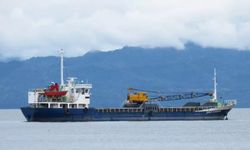Among the vessels sanctioned, the Ceres 1, a very large crude carrier (VLCC) with a notorious history of carrying Iranian crude, has drawn significant attention. The Ceres 1 was involved in a fiery collision with a Hafnia product tanker off the coast of Malaysia this past July. At the time, tracking data for the ship was inconsistent, preventing effective communication with the other vessel involved. After the accident, the Ceres 1 underwent major repairs in China and has resumed operations, now docked at a port in Vietnam.
The US Treasury Department stated that Iran continues to use its petroleum trade to fund its nuclear program, ballistic missile development, and support for regional militant proxies, contributing to instability in the region. Acting undersecretary for terrorism and financial intelligence, Bradley Smith, emphasized the US’s commitment to disrupting the network of vessels and operators involved in these activities.
In addition to vessels, numerous ship management companies were also sanctioned. This move has sparked growing concern about the future of Iranian oil exports, especially with Donald Trump set to return to the White House next month.
During his first term, Trump withdrew the US from the Iran nuclear deal, imposing an embargo that saw Iranian oil exports plummet from 2.5 million barrels per day in mid-2018 to just 250,000 barrels per day. Under the Biden administration, sanctions were less rigorously enforced, allowing Iranian exports to recover to an average of 1.5 million barrels per day in 2024.
Private Chinese refiners remain the largest buyers of Iranian crude, but recent market shifts, including higher prices and the anticipation of a stricter US policy, have led to a decline in Iranian exports. In November, imports from Iran to China were 10% lower compared to October. Analysts suggest that a significant reduction in Iranian exports could boost the tanker market, particularly for VLCCs, as ships previously used for Iranian oil would be repurposed to transport crude from other regions.
As the US sanctions tighten, the tanker industry stands to benefit, with tanker stocks surging following the announcement. If the US follows through with targeting additional vessels on its watchlist, analysts predict that crude tanker capacity utilization could jump from 85% to 95%, further boosting demand for VLCCs.
In related news, Russian tankers are increasingly forced to take longer, more evasive routes due to European sanctions. The UK’s recent crackdown on Russian shadow ships transiting the English Channel has led to rerouting, with the sanctioned Attica aframax tanker passing the Shetland Islands as it likely heads to India, adding two days to its journey.






